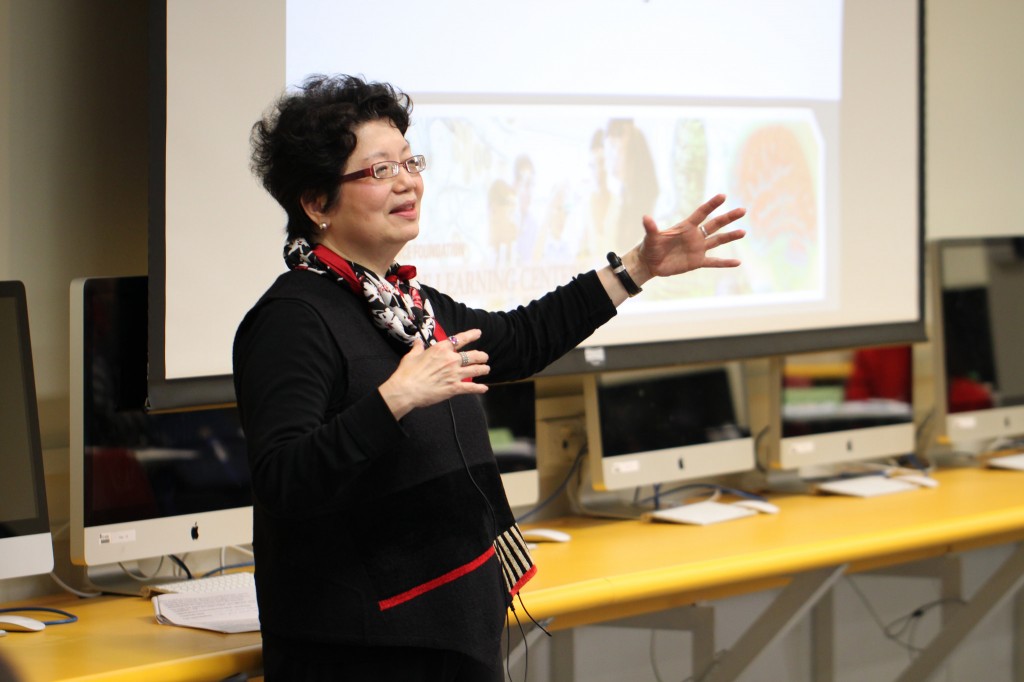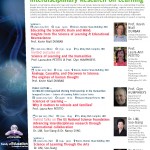Science of Learning Through the Arts

Lead Program Director and Chair of the Coordinating Committee for the Science of Learning Centers (SLC) Program at the US National Science Foundation
This seminar targets colleagues in the humanities departments of our university, and is one of Winter Institute 2015 activities.
Abstract
An increasingly compelling body of evidence has demonstrated gains in cognitive, social, and behavioral outcomes through learning of various art-forms, including music, visual arts, drama, and dance. This talk will introduce the US Interagency Task Force in the Arts and Human Development, spearheaded by the National Endowment for the Arts and the US Health and Human Services, with participation from several federal agencies including the US National Science Foundation. Established in 2011, the purpose of this Task Force is to promote sharing of research findings and other information about the arts and human development; to help develop future research directions; and to bring the arts to national and international discussions of health and education policy. This talk will also include a brief overview of the impacts of arts learning across the life-span, and highlights of Science of Learning research showing: 1) how music learning enhances the musician’s speech processing, auditory memory, and attention, and 2) how training a blind person to draw has revealed unexpected insights into the brain’s ability for functional reorganization.
About the speaker
Soo-Siang Lim, Ph.D is the Lead Program Director and Chair of the Coordinating Committee for the Science of Learning Centers (SLC) Program at the US National Science Foundation (NSF). She has led this Program since 2004, when the first SLCs were established to provide intellectual, organizational and physical infrastructure for addressing large-scale, complex problems about learning in humans, other animals and machines. Related to these interests, she was a member of a NSF Task Force for Innovation in Learning and Education, and is a member of the Interagency Task Force for Arts and Human Development spearheaded by the National Endowment for the Arts, in partnership with the U.S. department of Health and Human Services. Dr. Lim was a member of the Peer Review Team for the UNESCO Division of Basic and Higher Education, and has participated in a number of activities with the Organization for Economic Cooperation and Development (OECD), including the co-organization of two major international conferences to discuss advances in our understanding of learning and their implications for educational practice and policy.
Prior to her leadership of the SLC Program, Dr. Lim served as the Cluster Leader for the six Neuroscience programs in the Biological Sciences Directorate at the NSF, and as Program Director of the Neuronal and Glial Mechanisms Program. Other previous and present responsibilities include active roles in a number of large-scale, interdisciplinary efforts such as the Engineering Research Centers Program, the Science and Technology Centers Program, Cyberlearning Transforming Education Initiative, Integrative Graduate Education and Research Traineeship Program, Nanoscience and Engineering Initiative, and the Research Coordination Networks Program.
Prior to joining the National Science Foundation (NSF) in 1999, she was an Associate Professor in the Department of Anatomy and Cell Biology at Indiana University, School of Medicine, where she led an active research program in cell biology and neuroscience. She received her Ph.D in Anatomy from the University of North Dakota, followed by post-doctoral training and subsequent scientist appointments at the University of Wisconsin-Madison.
Related event
◎Winter Institute
Winter Institute 2015
Stimulating and Incubating Interdisciplinary Research on Learning



